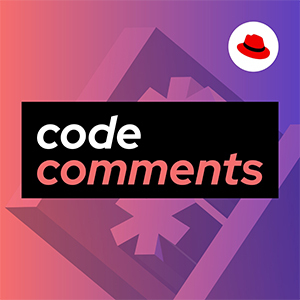
Release Management For Data Platform Services And Logic
05.12.2024 - By Tobias Macey
Download our free app to listen on your phone
Summary
Building a data platform is a substrantial engineering endeavor. Once it is running, the next challenge is figuring out how to address release management for all of the different component parts. The services and systems need to be kept up to date, but so does the code that controls their behavior. In this episode your host Tobias Macey reflects on his current challenges in this area and some of the factors that contribute to the complexity of the problem.
Announcements
Hello and welcome to the Data Engineering Podcast, the show about modern data management
This episode is supported by Code Comments, an original podcast from Red Hat. As someone who listens to the Data Engineering Podcast, you know that the road from tool selection to production readiness is anything but smooth or straight. In Code Comments, host Jamie Parker, Red Hatter and experienced engineer, shares the journey of technologists from across the industry and their hard-won lessons in implementing new technologies. I listened to the recent episode "Transforming Your Database" and appreciated the valuable advice on how to approach the selection and integration of new databases in applications and the impact on team dynamics. There are 3 seasons of great episodes and new ones landing everywhere you listen to podcasts. Search for "Code Commentst" in your podcast player or go to dataengineeringpodcast.com/codecomments today to subscribe. My thanks to the team at Code Comments for their support.
Data lakes are notoriously complex. For data engineers who battle to build and scale high quality data workflows on the data lake, Starburst is an end-to-end data lakehouse platform built on Trino, the query engine Apache Iceberg was designed for, with complete support for all table formats including Apache Iceberg, Hive, and Delta Lake. Trusted by teams of all sizes, including Comcast and Doordash. Want to see Starburst in action? Go to dataengineeringpodcast.com/starburst and get $500 in credits to try Starburst Galaxy today, the easiest and fastest way to get started using Trino.
Your host is Tobias Macey and today I want to talk about my experiences managing the QA and release management process of my data platform
Interview
Introduction
As a team, our overall goal is to ensure that the production environment for our data platform is highly stable and reliable. This is the foundational element of establishing and maintaining trust with the consumers of our data. In order to support this effort, we need to ensure that only changes that have been tested and verified are promoted to production.
Our current challenge is one that plagues all data teams. We want to have an environment that mirrors our production environment that is available for testing, but it’s not feasible to maintain a complete duplicate of all of the production data. Compounding that challenge is the fact that each of the components of our data platform interact with data in slightly different ways and need different processes for ensuring that changes are being promoted safely.
Contact Info
Website
Closing Announcements
Thank you for listening! Don't forget to check out our other shows. Podcast.__init__ covers the Python language, its community, and the innovative ways it is being used. The Machine Learning Podcast helps you go from idea to production with machine learning.
Visit the site to subscribe to the show, sign up for the mailing list, and read the show notes.
If you've learned something or tried out a project from the show then tell us about it! Email [email protected] with your story.
Links
Data Platforms and Leaky Abstractions Episode
Building A Data Platform From Scratch
Airbyte
Podcast Episode
Trino
dbt
Starburst Galaxy
Superset
Dagster
LakeFS
Podcast Episode
Nessie
Podcast Episode
Iceberg
Snowflake
LocalStack
DSL == Domain Specific Language
The intro and outro music is from The Hug by The Freak Fandango Orchestra / CC BY-SA Sponsored By:Starburst: 
This episode is brought to you by Starburst - an end-to-end data lakehouse platform for data engineers who are battling to build and scale high quality data pipelines on the data lake. Powered by Trino, the query engine Apache Iceberg was designed for, Starburst is an open platform with support for all table formats including Apache Iceberg, Hive, and Delta Lake.
Trusted by the teams at Comcast and Doordash, Starburst delivers the adaptability and flexibility a lakehouse ecosystem promises, while providing a single point of access for your data and all your data governance allowing you to discover, transform, govern, and secure all in one place. Want to see Starburst in action? Try Starburst Galaxy today, the easiest and fastest way to get started using Trino, and get $500 of credits free. Go to [dataengineeringpodcast.com/starburst](https://www.dataengineeringpodcast.com/starburst)Red Hat Code Comments Podcast: 
Putting new technology to use is an exciting prospect. But going from purchase to production isn’t always smooth—even when it’s something everyone is looking forward to. Code Comments covers the bumps, the hiccups, and the setbacks teams face when adjusting to new technology—and the triumphs they pull off once they really get going. Follow Code Comments [anywhere you listen to podcasts](https://link.chtbl.com/codecomments?sid=podcast.dataengineering).Support Data Engineering Podcast

